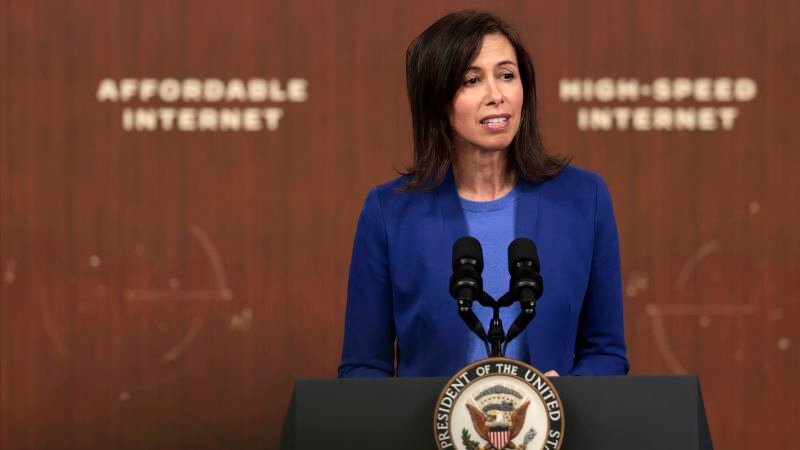Federal Communications Commission chairwoman Jessica Rosenworcel criticized former President Donald Trump’s attacks on CBS and calls for the network to “lose its license” over a recent “60 Minutes” interview with Vice President Kamala Harris. Trump accused CBS News of editing the interview to make Harris look better, calling it a “giant Fake News Scam.” Rosenworcel emphasized that the FCC does not revoke broadcast licenses because of political disagreements and reiterated the importance of the First Amendment in protecting free speech.
Trump’s attacks on CBS came after he backed out of his own “60 Minutes” interview and declined invitations for additional debates with mainstream networks, opting instead for right-wing media outlets. He has previously called for the licenses of networks like ABC and Fox to be revoked. Rosenworcel’s statement in support of broadcasters follows her condemnation of threats by Florida’s Health Department to prosecute TV stations over an abortion rights ad, highlighting the importance of free speech principles in the face of government pressure.
Trump and his allies have a history of threatening the press, with Trump calling for investigations into Comcast, the parent company of NBC News and MSNBC, and suggesting that the news media would “pay a big price” if he were reelected as president. New York Times publisher A.G. Sulzberger warned of Trump’s use of an anti-press playbook similar to that of authoritarian leaders, stressing the need to take his statements and actions seriously in order to protect journalists and those who rely on a free press.
Rosenworcel’s denouncement of Trump’s attacks on CBS and calls to revoke its license is part of a broader trend of defending free speech principles and the role of the press in a democracy. Trump’s criticisms of mainstream media outlets and his preferential treatment of right-wing media reflect a larger pattern of undermining journalistic integrity and attempting to silence dissenting voices. Sulzberger’s warning about the risk posed to the profession and those who rely on it underscores the importance of vigilance in protecting press freedom from efforts to suppress it.
The ongoing tensions between the Trump administration and the media highlight the broader challenges facing journalism in an era of political polarization and attacks on the press. Rosenworcel’s statements in defense of broadcasters and free speech rights serve as a reminder of the importance of upholding the principles of the First Amendment and resisting efforts to silence dissenting voices. Sulzberger’s call to take Trump’s anti-press actions seriously underscores the need to defend press freedom as a fundamental pillar of democracy, even in the face of threats and intimidation.











